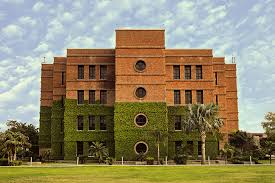Islamabad, Dec 19: The third annual Pathways to Development Conference, held from December 16-18 at LUMS, brought together key voices from Pakistan and the diaspora to discuss the crucial role of governance and inclusion in building resilient and equitable societies. The conference explored a wide range of issues, from climate justice and poverty alleviation to digital innovation and gender equality, with a focus on creating inclusive, sustainable solutions for Pakistan’s development.
Organized jointly by LUMS’ Chaudhry Nazar Muhammad Department of Economics, Mahbub Ul Haq Research Centre, Centre for Economic Research in Pakistan (CERP), and other esteemed organizations, the conference hosted 20 engaging sessions led by prominent academics, policymakers, and practitioners. Mr. Maroof A. Syed, President and CEO of CERP, emphasized the importance of reimagining governance as a dynamic, participatory process to drive progress.
A key moment of the conference was a statement from Justice Mansoor Ali Shah of the Supreme Court of Pakistan, who called climate finance “the new climate justice” and urged courts to recognize it as a fundamental human right, while demanding the global north address its “climate debt.”
Keynote speakers included Dr. Lant Pritchett from the London School of Economics, who highlighted the limitations of the low-bar poverty line and stressed the importance of state capability in development, and Dr. Mazhar Waseem from the University of Manchester, who discussed Pakistan’s tax system and the need for targeted enforcement to improve compliance and revenue generation.
The conference also addressed critical topics such as land rights, debt restructuring, health governance, and crisis response. Distinguished speakers like Dr. Ali Cheema, Dr. Murtaza Syed, and Ms. Fauzia Viqar provided valuable insights into these issues, proposing research-driven solutions for more effective governance and social change.
Through lively discussions on electoral dynamics, gender development, and social change, the conference highlighted the importance of inclusion and governance in shaping a resilient and equitable future for Pakistan. The event not only showcased groundbreaking research but also sparked meaningful dialogue and presented actionable solutions for sustainable development.
